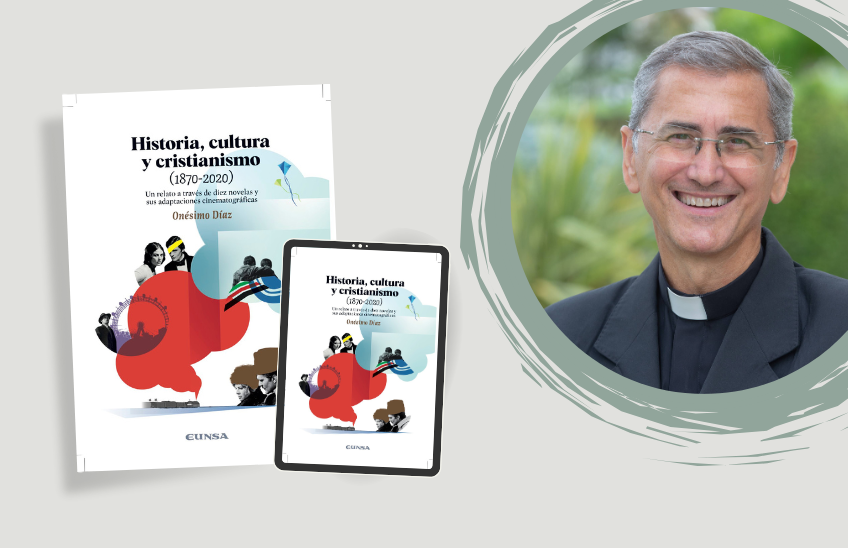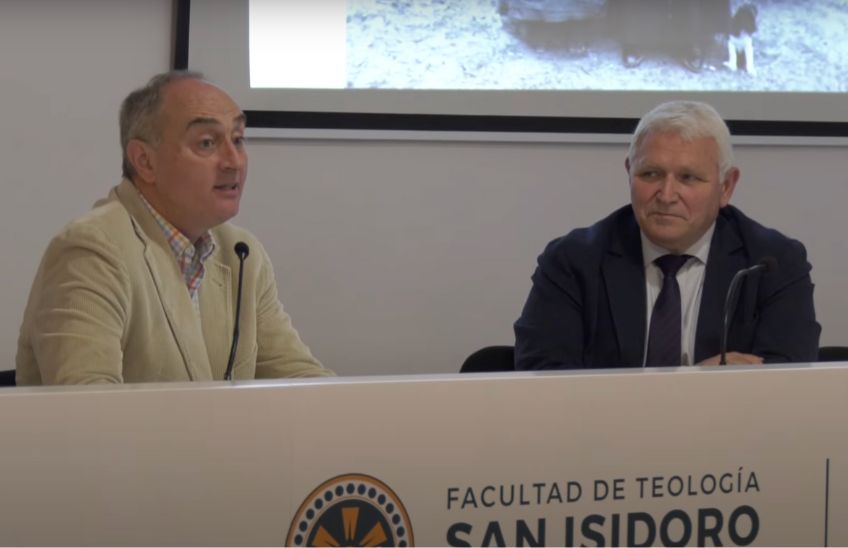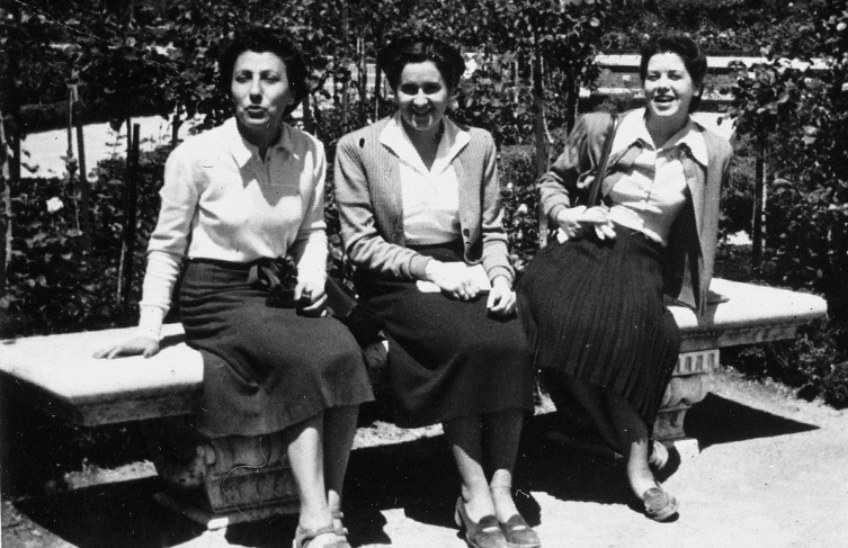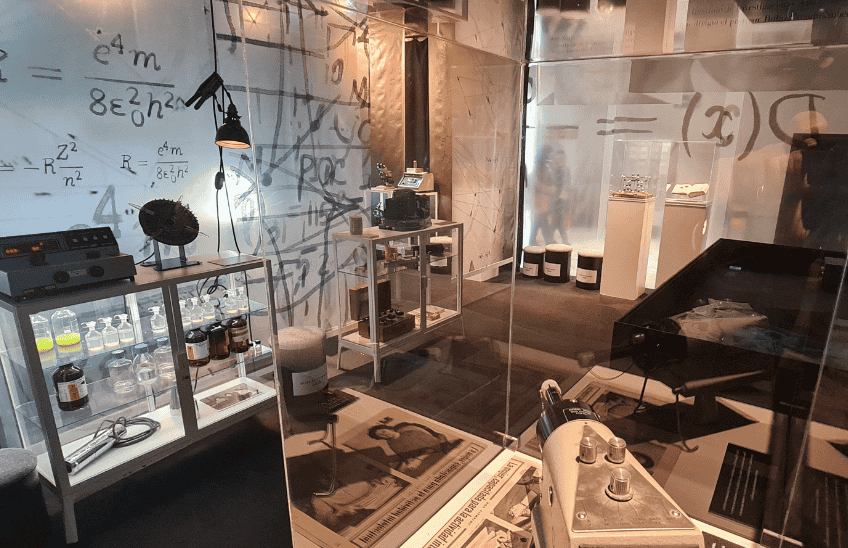Amadeo de Fuenmayor, a jurist and defender of freedom rights
Twenty years have passed since the death of Amadeo de Fuenmayor Champín (1915-2005). Teacher of civilists, canonists and ecclesiasticists. Defender of religious freedom when it was an uncomfortable topic in Spain in the 1960s, before the promulgation of Dignitatis humanae. He formed generations of jurists with an ethical and human vision of the profession.

20 | 11 | 2025
Amadeo de Fuenmayor Champín was born in Valencia in 1915. He studied law and very early on showed a special inclination towards Civil Law, specifically family law, where he would focus much of his research. His solid legal training led him to stand out as a rigorous academic, capable of combining technical analysis with sensitivity to the concrete problems of society.
Trained in Civil Law and Family Law, he began his academic degree program in Santiago de Compostela (combining teaching with the practice of law). Later, he joined the University of Navarra, where he was Full Professor of Civil Law and State Ecclesiastical Law. Between 1967 and 1989 he was Dean of the School of Canon Law.
As Professor María Blanco has pointed out, his experience in three areas of law -civil, canonical and ecclesiastical- made him a unique academic. He supervised more than a hundred doctoral thesis and transmitted to his students not only technical knowledge , but also an ethical and human vision of the profession. In Spain and abroad, many jurists recognize in him a master who knew how to combine rigor and commitment.
Besides professor , he was, among other things, member of the Commission for the application of the Concordat of 1953, board member of the General Codification Commission of the Ministry of Justice and consultant the Pontifical committee for the Interpretation of Legislative Texts in Rome. His voice was echoed both in the update civil marriage law and in the juridical reflection in the context of the universal Church.
Priest and academic
Fuenmayor joined Opus Dei in 1939. In 1948 he left his Chair in Santiago to begin programs of study in Philosophy and Theology, and a year later he was ordained a priest in Madrid along with other professionals, among them the architect Ricardo Fernández Vallespín and the historian José Orlandis.
From then on, his scientific production was more oriented towards Canon Law and the ecclesiastical law of the State. As a priest he practiced, above all, at the university level where he knew how to combine pastoral work with research and teaching. In his opinion, law in the Church is not an obstacle, but a guarantee of order and justice at the service of the evangelizing mission statement .
At the service of society and the Church
Fuenmayor addressed in depth the real problems that affected Spanish society in subject of marriage and family. His goal was not only theoretical: he conceived law as aninternship tool to guarantee justice. His constant defense of the autonomy of the contracting parties, in the context of a confessional state, reflects well his concern to reconcile respect for the law with the protection of the dignity and individual freedom of the person.
This same attitude also marked his work as a canonist. During the years following the Second Vatican Council, as Dean of the School of Canon Law at the University of Navarra and consultant to some Vatican organizations, he insisted that law was an indispensable element in the life of the Church. Opposed to currents that proposed to replace juridical norms with exclusively pastoral solutions, he understood that the ecclesial mission statement needed those juridical instruments that, while safeguarding the freedom and rights of the faithful, would bring justice. However, he emphasized that law should be understood as a means at the service of the Church's evangelizing mission statement .
His contribution to the ecclesiastical law of the State was marked by an equally genuine vision. Even before the publication of the declaration Dignitatis humanae of the Second Vatican Council, when Spain was still a confessional state, he defended religious freedom as a natural right that should be recognized by civil legislation. In congresses, conferences and debates, he argued that religious freedom could not depend on the majority confession or be subordinated to particular privileges. At the time, this position was audacious. His participation in the gestation of the first Religious Freedom Law (1967) opened the way to a more pluralistic legal framework , respectful of the dignity of all people.
A current bequest
Twenty years after his death, Amadeo de Fuenmayor continues to be an authoritative reference letter . Not only for his publications but also for his ability to combine law and freedom with a rigorous legal approach and a priestly life of generous submission. His bonhomie and professional solidity earned him the affection and friendship of many jurists of his time. Some of them, great teachers today.
At a time when issues such as the relationship between freedom of conscience and public order, the legal protection of the family and the challenges of the law of religious denominations in pluralistic societies are once again being debated, many of his approaches remain valid. His life reminds us that the jurist, beyond applying and interpreting legal norms, is called to engage with society and to defend the dignity of each person.




